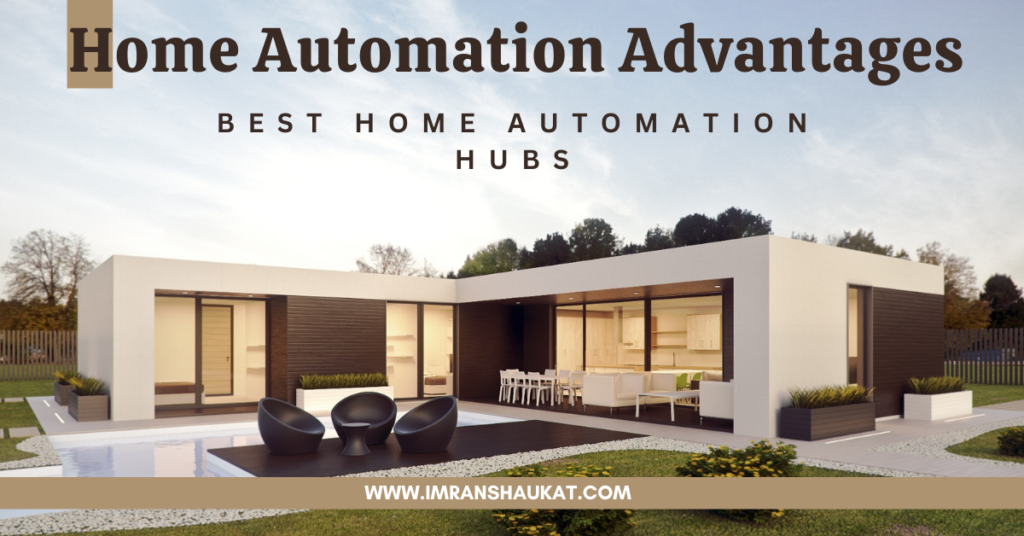Jump To:
Home automation, often referred to as “smart home technology,” offers numerous benefits that enhance the convenience, security, and energy efficiency of a home. Here are some key home automation advantages:
- Convenience and Comfort: Home automation systems allow you to control various aspects of your home environment with ease. You can adjust lighting, temperature, and even control multimedia systems remotely or through voice commands. This convenience significantly enhances your living experience.
- Energy Efficiency: Smart home devices like thermostats and lighting systems can be programmed to optimize energy usage. For example, a smart thermostat can learn your schedule and adjust the heating or cooling to reduce energy consumption when you’re not home. This not only saves energy but also reduces utility bills.
- Enhanced Security: Home automation can include advanced security features like smart locks, surveillance cameras, and motion detectors. These systems can be monitored remotely, giving homeowners the ability to see what’s happening at their home in real-time and receive alerts in case of any suspicious activities.
- Remote Control and Monitoring: With home automation, you can control and monitor your home remotely using a smartphone or tablet. This is particularly useful for tasks like checking if you’ve locked the door, adjusting the thermostat, or turning off lights when you’re away from home.
- Customization and Flexibility: Smart home systems are highly customizable, allowing homeowners to create an environment that suits their specific needs and preferences. As technology evolves, these systems can be upgraded or expanded with new features and devices.
- Increased Home Value: Homes equipped with smart technology can have a higher market value. The convenience and modernity of home automation systems make such homes more attractive to potential buyers.
- Safety Enhancements: Automated lighting can help in reducing the risk of accidents caused by poor lighting. Also, being able to control appliances remotely can help in preventing accidents, like a stove being left on unattended.
- Health Monitoring: Some home automation systems integrate with health monitoring devices, allowing for the tracking of vital signs and alerting in case of health emergencies, which is particularly beneficial for elderly or disabled individuals living alone.
- Integration with Other Smart Devices: Home automation systems can often be integrated with other smart devices and platforms, allowing for a more interconnected and seamless smart home ecosystem.
-
Time Savings: By automating routine tasks, such as adjusting blinds or watering the garden, homeowners can save time and focus on other important activities.

Home automation encompasses a wide range of systems and devices, each designed to enhance the convenience, efficiency, and security of a home. These systems can be broadly categorized into several types based on their functions and connectivity. Here are the primary types of home automation:
- Lighting Control Systems: These systems allow you to automate and remotely control the lighting in your home. This can include dimming functions, scheduling lights to turn on or off at specific times, and even changing the color and intensity of the light for ambiance.
- Smart Thermostats and HVAC Control: Smart thermostats learn your preferences and schedule to optimize heating and cooling in your home. They can be controlled remotely, and they adjust the temperature based on your habits and the weather, improving energy efficiency.
- Security and Surveillance Systems: This category includes smart locks, security cameras, motion detectors, and alarm systems. These devices can often be monitored and controlled remotely, providing real-time security alerts and footage.
- Home Entertainment Systems: Smart home entertainment systems encompass the automation of TVs, sound systems, and other multimedia devices. They can be controlled via voice, remote apps, or integrated control systems.
- Smart Appliances: This includes a wide range of appliances such as refrigerators, ovens, washing machines, and dryers that are connected to the internet. They offer features like remote control, maintenance diagnostics, and efficiency optimizations.
- Home Health and Safety Monitoring: These systems are designed to monitor health and safety within the home. They can include medical alert systems, air quality monitors, water leak sensors, and smoke and carbon monoxide detectors.
- Energy Management Systems: These systems are focused on optimizing energy use in the home. They can include smart meters, solar energy systems, and devices that monitor and manage energy consumption.
- Smart Home Hubs and Controllers: These are central devices or platforms that integrate various smart home devices and allow them to work together seamlessly. They can be voice-controlled assistants like Amazon Echo or Google Home, or more comprehensive home automation systems.
- Voice-Controlled Assistants: Devices like Amazon Alexa, Google Assistant, and Apple HomeKit enable voice control of various smart home devices, offering a hands-free way to manage your home.
- Gardening and Irrigation Systems: Smart gardening systems include automated irrigation systems, plant sensors, and even robotic lawn mowers, all designed to maintain your garden or lawn efficiently.
- Window and Blind Automation: This includes automated blinds and curtains that can be scheduled or triggered by light sensors to open and close, helping in regulating temperature and light.
Each type of home automation system offers unique benefits and can be chosen based on individual needs and preferences. The integration of these systems can create a comprehensive smart home environment, enhancing the comfort, efficiency, and security of your living space.
Some Of The Best Home Automation Hubs
-
Samsung SmartThings Hub: Samsung’s SmartThings is one of the most popular home automation hubs. It supports a wide range of devices and protocols including Zigbee, Z-Wave, and Wi-Fi. It’s user-friendly and integrates well with Samsung’s ecosystem of products and services. (Click Here To Read Reviews)
- Amazon Echo (with Alexa): While primarily known as a smart speaker, Amazon Echo devices equipped with Alexa can also function as effective home automation hubs. They can control a wide range of smart home devices using voice commands and are particularly user-friendly. (Click here to read reviews)
- Google Nest Hub: Similar to Amazon’s Echo, Google Nest Hub combines the functionality of a smart speaker with a home automation hub. It supports a wide range of smart home devices and is integrated with Google Assistant for voice control.
- Apple HomePod Mini (with HomeKit): For users deeply invested in the Apple ecosystem, the HomePod Mini is an excellent choice. It uses Apple’s HomeKit to control smart home devices and is known for its strong privacy and security features.
- Hubitat Elevation: Hubitat is a powerful local home automation hub, meaning it operates even without an internet connection. It supports Zigbee, Z-Wave, and Lutron devices and is geared towards users who prefer more control and customization. (click here to read reviews)
- Wink Hub 2: Wink Hub 2 supports a variety of protocols including Zigbee, Z-Wave, Lutron Clear Connect, and Kidde. It’s known for its simple setup and user-friendly app, making it a good choice for those new to home automation.
When choosing a home automation hub, consider the types of devices you already have or plan to get, as compatibility is key. Also, think about the ecosystem you’re most comfortable with (e.g., Amazon, Google, Apple) as this can affect the ease of use and integration capabilities. Keep in mind that the smart home market is rapidly evolving, and new products and updates are frequently released, so it’s a good idea to check for the latest models and reviews before making a decision.




